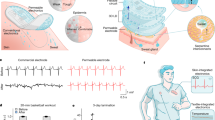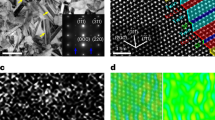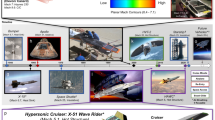Abstract
AN earlier communication1 from this Laboratory described experiments in which the thermal action of electric sparks was used to simulate the effects of frictional heating on the structure of rubbing steel surfaces. The high local temperatures which characterize rubbing contacts can, in certain circumstances, initiate austenite formation and, since conduction into the bulk metal provides effective quenching of the hot spots, martensite is formed and causes hardening of the surface layer. Similarly the brief but intense heat of an electric spark, struck between an electrode and the steel surface, can harden a small volume of material. If the sparking electrode traverses the surface a hard and wear-resistant skin develops.
This is a preview of subscription content, access via your institution
Access options
Subscribe to this journal
Receive 51 print issues and online access
$199.00 per year
only $3.90 per issue
Buy this article
- Purchase on Springer Link
- Instant access to full article PDF
Prices may be subject to local taxes which are calculated during checkout
Similar content being viewed by others
References
Welsh, N. C., J. App. Phys., 28, 960 (1957).
D.S.I.R. Publication, “Working Metals by Electro-sparking”; an abridged translation from the Russian (London, 1956).
Author information
Authors and Affiliations
Rights and permissions
About this article
Cite this article
WELSH, N. Surface Hardening of Non-ferrous Metals by Spark Discharge. Nature 181, 1005–1006 (1958). https://doi.org/10.1038/1811005a0
Issue Date:
DOI: https://doi.org/10.1038/1811005a0
This article is cited by
-
Surface Hardening of Metals by Spark Discharge
Nature (1958)
Comments
By submitting a comment you agree to abide by our Terms and Community Guidelines. If you find something abusive or that does not comply with our terms or guidelines please flag it as inappropriate.



